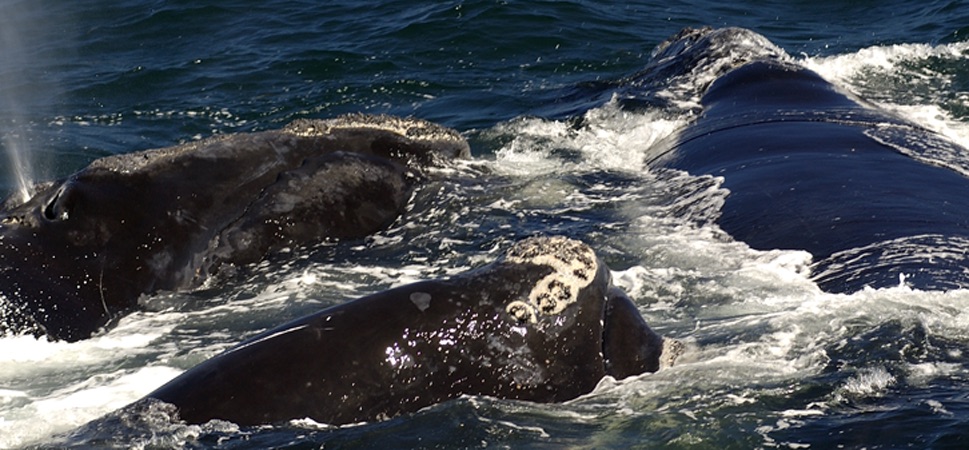Fisheries and Oceans Canada confirms that two new North Atlantic right whale carcasses have been found, one on the coast of Anticosti Island and the other adrift off the Gaspé Peninsula. This brings this year’s mortality count to six for this species in the Gulf of St. Lawrence. In response, Transport Canada immediately implemented a 10-knot speed limit on vessels 20 metres and over in the western Gulf of St. Lawrence, namely in two designated shipping lanes north and south of Anticosti Island.
These precautions are directly related to the precarious status of this endangered species. Michelle Sanders, Transport Canada’s Director of Clean Water Policy, points out that: “This is a precautionary measure given that North Atlantic right whales have been observed near the shipping lanes. The goal is to limit the impact of shipping traffic on right whales.
A known female
The fifth carcass was identified by the New England Aquarium using the organization’s catalogue. Born in 2003, this female was known as #3329. The scars she bears reveal that she has suffered at least four entanglements in fishing gear over her lifetime. She was last seen on April 25, 2019 in Cape Cod Bay, Massachusetts. Fisheries and Oceans Canada is currently analyzing its options for recovering and performing a necropsy on the sixth carcass.
The sixth carcass has yet to be identified.
The mystery persists
Of the six North Atlantic right whale carcasses, only two necropsies have been conducted so far. According to Matthew Hardy, aquatic resources division manager with Fisheries and Oceans Canada: “It’s still too early to tell what’s going on. The carcasses discovered do not show any pattern in terms of distribution or cause of mortality. We are actively working to gather additional data to get a better handle on the situation.”
Right whales are more vulnerable to entanglements with fishing gear and collisions with ships than other large whales. Because they come to the St. Lawrence to feed, they spend a great deal of time at the surface. They also have the disadvantage of being slow swimmers.
According to the 2018 annual report prepared by the North Atlantic Right Whale Consortium, a mere 411 North Atlantic right whales remain. Seven calves were born last winter, while a minimum of 17 calves would be needed to put the species back on the path to recovery. The mortalities tallied to date in the Gulf of St. Lawrence in 2019 represent a 1% decline in this species.
Snapshot of the five right whales
1. Wolverine
9-year-old male
Necropsy results inconclusive to identify the cause(s) of mortality.
2. Punctuation
Approx. 40-year-old female
Necropsy reveals a trauma that corresponds to the after-effects of a ship strike.
3. Comet
Male, at least 30 years old
Necropsy will be conducted within the next few days in Prince Edward Island.
4. Whale not featured in the catalogue (no name)
11-year-old female
Given the advanced state of decomposition, no necropsy will be performed. Sampling could be performed at sea.
5. #3329
16-year-old female
Considering the remote location of the carcass, Fisheries and Oceans Canada is assessing the feasibility of performing an on-site necropsy or transporting the carcass.
6. Clipper
Female
Necropsy conducted on July 1st.





